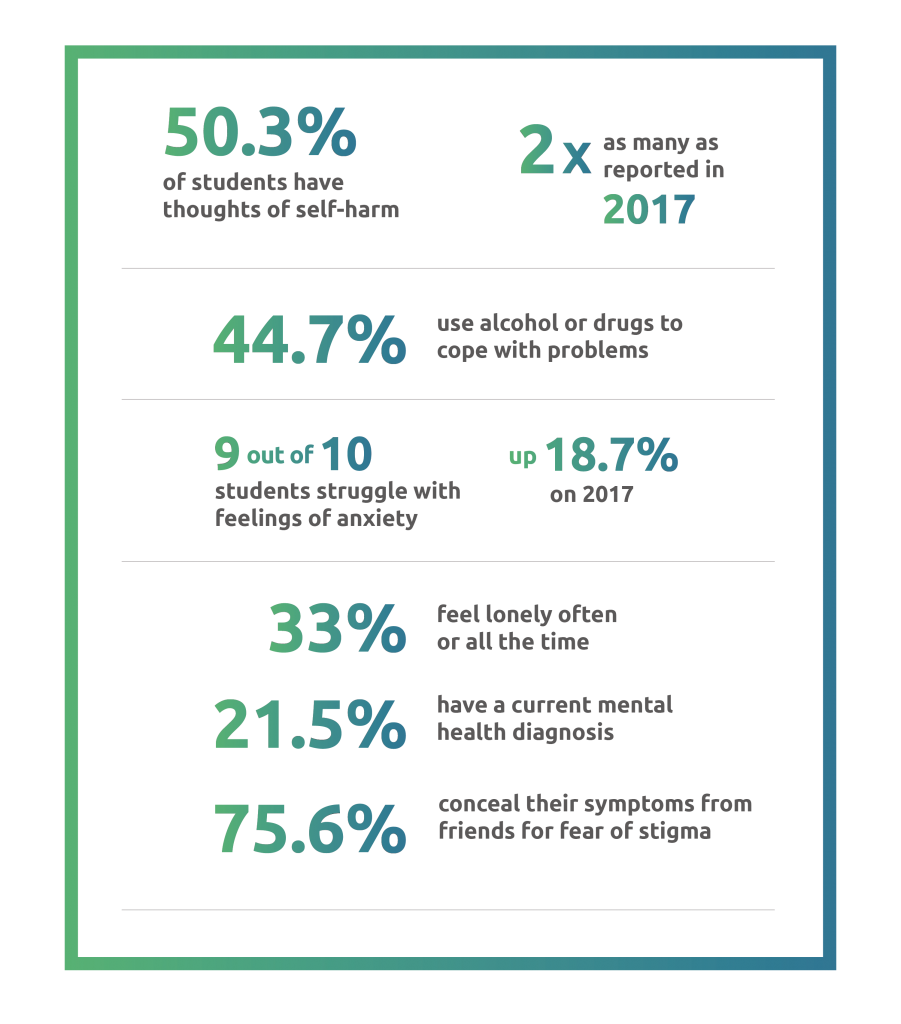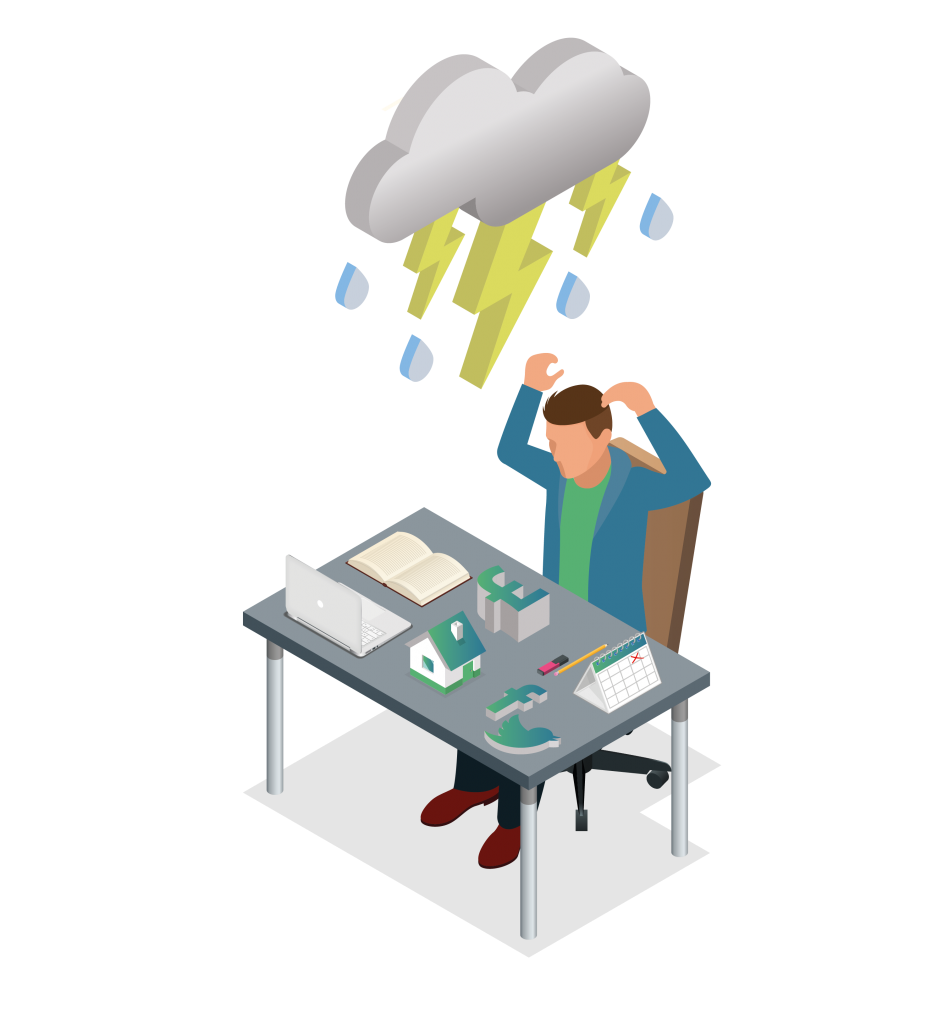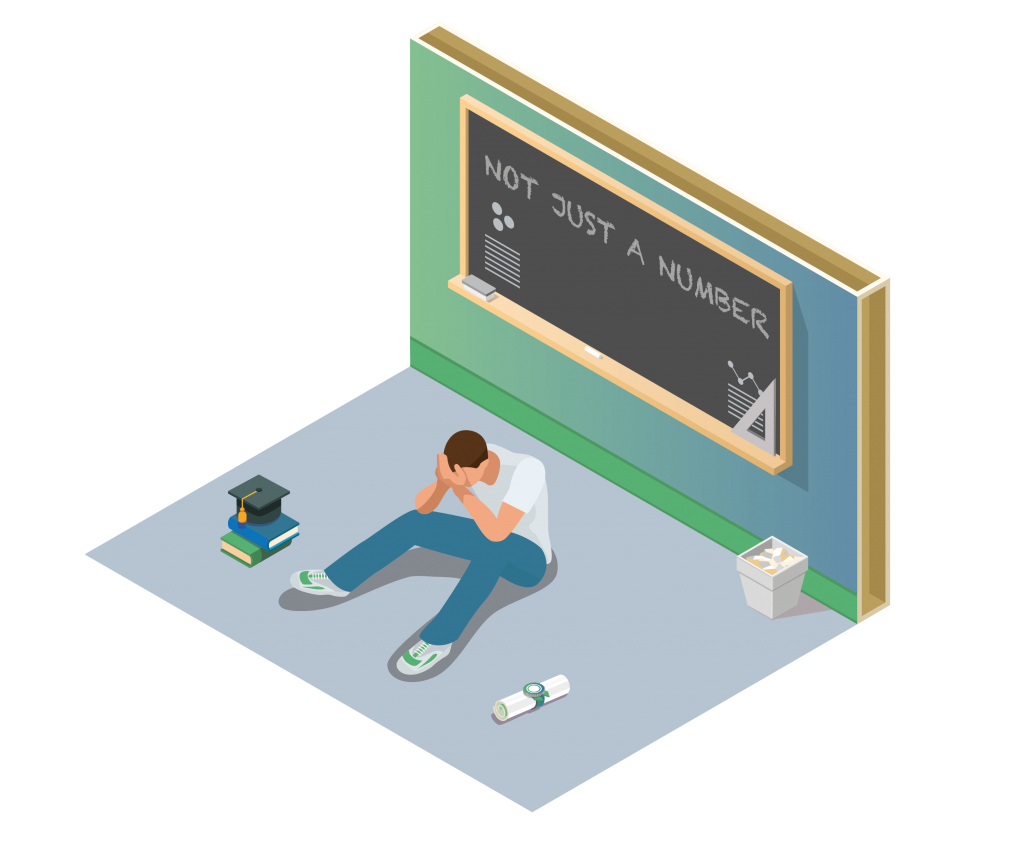Why there needs to be a collaborative approach to help combat the student mental health crisis

A rise in anxiety and stress is sweeping UK universities. Increasingly, students are reporting that they’re grappling with mental health issues – and counselling and health services say they are struggling to cope.
The problem is recognised at the highest levels. Nicola Dandridge, the CEO of the Office for Students, said that universities must make improving mental health services a “top priority”, while former Higher Education Minister Sam Gyimah called for better emotional support for students.
 (Source: University Student Mental Health Survey 2018)
(Source: University Student Mental Health Survey 2018)
But what is troubling students, whose job is it to fix the problem, and how? And is there anything that universities can learn from other sectors?
Why the rise?
Universities have always had distressed students. The mix of being away from home for the first time, exam pressures, friendship woes and fears for the future is a potent one.
However, students today face additional difficulties.
Firstly, financial pressures. Today’s cohort is paying hefty tuition fees and living costs, and students may be looking at their job and housing prospects in alarm.
This is exacerbated by the fact that universities are, quite rightly, trying to attract students from poorer backgrounds whose parents cannot support them financially.
Then there’s social media and digital technologies. While these can be a force for good, they can also pressurise students to look perfect, appear popular, and achieve unrealistic goals.
It all adds up to a perfect storm of mental ill-health. While the rate of suicide among students is in fact lower than that of their general age group, the result is still misery for many and, according to one investigation, a vastly increased number of drop-outs.
Which partnerships are working?
Universities are investing in counselling services – yet it’s calculated that these are staffed at around just one quarter to one third of the required level.
Many, therefore, are forging partnerships with organisations in the public, private and non-profit sectors.
The University of the West of England’s student union has partnered with Shout, funded by the Royal Foundation, which offers 24/7 confidential text message counselling.
The Open University, meanwhile, has turned to a commercial provider, Big White Wall, to provide digital guided support services. So far, 1,700 students have signed up.
However, while such services may support those with lower-intensity problems, they must also be able to signpost students in crisis to more acute NHS provision.
The Cambridge clinical school, for example, pays the NHS to provide rapid mental health services to its students. This could provide other universities with a model to follow.
Joining up the dots
So there are services out there for struggling students. But provision is underfunded, understaffed, and, above all, fragmented.
One problem is geographical boundaries: students who suffer a crisis during term-time may struggle to access help if they are registered with their hometown GP.
It’s essential that they can access surgeries near campus as visitors, without excessive bureaucracy. It’s also vital that GPs at both surgeries communicate, so that warning signs are picked up at an early stage.
As PhD student Gianmarco Raddi writes in the Guardian: “We need the services that already exist to be better harmonised: provision of mental health care to students is fragmented between multiple agencies across universities and the NHS, which do not always effectively talk to each other. There is no clear idea of who is ultimately responsible.”
A ‘Students’ Gateway’?
One collaborative approach that could provide is that of the Veterans’ Gateway.
This is the first point of contact for veterans and their families seeking support, whether for housing, employment, finances or mental or physical health.
It provides one-to-one help for people navigating their way around the huge network of organisations supporting the six-million-strong British Armed Forces community.
Funded by the Armed Forces Covenant, Veterans’ Gateway brings together a consortium of organisations both within and outside the military, including The Royal British Legion, Mind and the Career Transition Partnership. Connect Assist is the glue that holds it all together, providing customer services, triage, and customer relationship management support.
It’s the first time a group of this kind has come together to help the Armed Forces Community – and it’s proving highly effective. Last year alone, it handled 10,000 calls, 5,000 online chat conversations, and 4,500 emails.
As one service user said: “Veterans’ Gateway makes it quick and easy… If there is someone at the end of the phone who can advise where you should go, I think that is exactly what veterans need.”
Collective responsibility

The responsibility for students’ mental health is a grey area. They’re no longer children, yet not quite adults. They live independently, yet are still reliant financially and emotionally on their parents. They’re part of their higher education institution, yet often feel horribly alone.
Collaboration between students, parents, health services, private and non-profit sector services and universities is vital to provide a safety net for those who need it, and reverse this tide of mental ill-health in the UK’s higher education sector.







